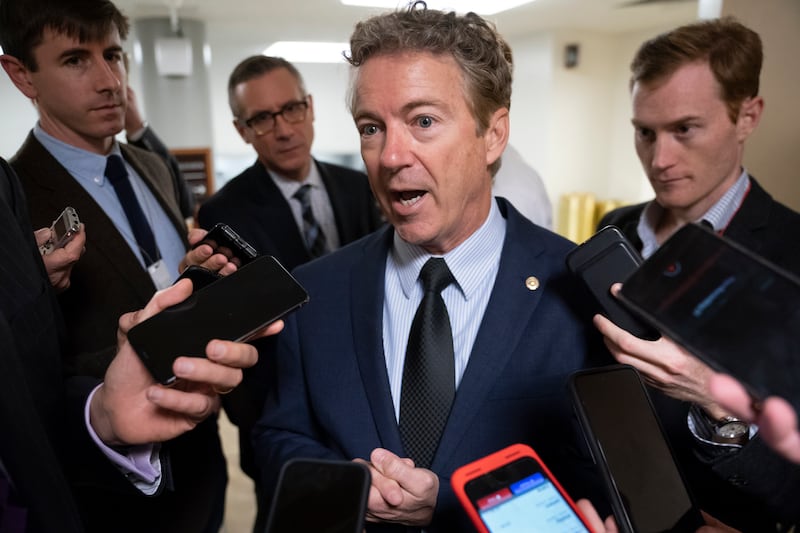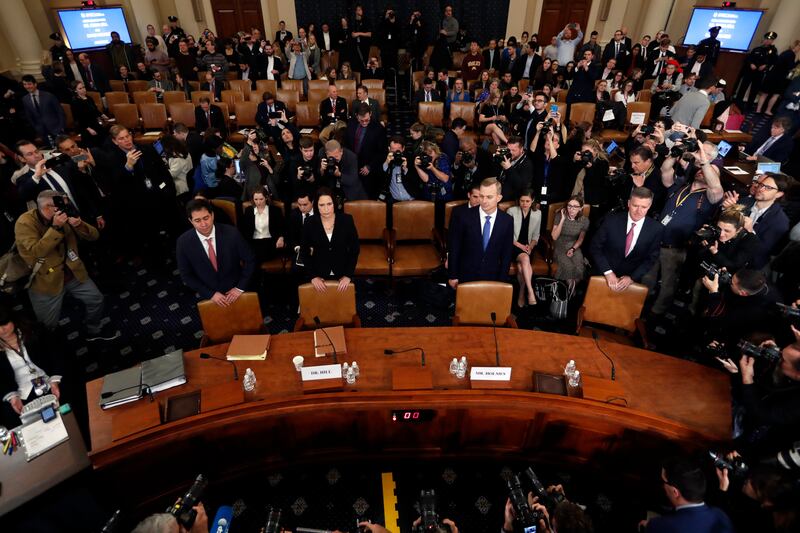The political battle has turned to attacking the whistleblower, discrediting secondhand reports and calling to remove whistleblower anonymity. Recent academic research suggests this approach may be more costly to the United States than the alleged improprieties by Hunter Biden or Donald Trump.
Whistleblowing is counterintuitive
Which would you prefer as the leader of an organization: To receive more reports through an internal hotline or fewer reports? Many would prefer to have fewer internal whistleblowing reports, equating the number of reports with the number of underlying problems. This intuition makes sense; however, research shows that it may be misleading.
Companies with more internal whistleblowing reports tend to have fewer lawsuits, lower settlement amounts, fewer regulatory fines and smaller amounts paid for penalties. Why? Internal whistleblowing enables companies to identify and solve problems before they become increasingly severe and costly, potentially involving courts or regulators. To reduce the number of internal whistleblowing reports, a company can stop responding to reports, make the system less accessible, or even worse retaliate against any employee willing to speak up. The number of reports received is not necessarily an indicator of problems; every organization has some level of problems. Instead, the number and quality of reports can indicate employees’ trust in management and the amount of information flowing to management about issues that have arisen within the company.
Partisan politicians and pundits are now internal whistleblowing experts, offering hyperbolic commentary about what to do with the White House whistleblower. In a pledge of loyalty, some are destroying one of the country’s best tools for discovering fraud and crime by seeking to publicly shame and punish the White House whistleblower. There is potentially more at risk here than the possible wrongdoing of Biden or Trump. If we create a culture where whistleblowers can’t voice their concerns without fear of retaliation, we will lose one of our most important tools for uncovering problems — people calling them out. President Trump calling the whistleblower a “rat” and the push to remove the whistleblower’s anonymity will have a long-term impact on the likelihood that those with information about wrongdoing speak up.
Changing the whistleblowing narrative
If you look up “whistleblower” in a thesaurus, you’ll find that most synonyms are negative: betrayer, blabbermouth, double-crosser, fink, rat, snitch, and so on. These paint an inaccurate picture of whistleblowing and whistleblowers. Take, for example, Peter Buxtun, the whistleblower credited with ending the Tuskegee syphilis experiment. The Tuskegee Study of Untreated Syphilis, conducted by the United States government, studied the effects of untreated syphilis on African American males — none of the subjects were told they had the disease and none were treated with penicillin even after it was proven to successfully treat syphilis. Peter Buxtun was the employee whistleblower who saved lives by reporting the horrible experiment. Was Peter Buxtun a snitch? You might say, “Well, that is different. What if a report is fake? Or what if it is for personal gain? What if it is based on secondhand information? What if it is a deep state attack?”
Even if the Ukraine whistleblower report is a deep state attack, maintaining a culture where government employees can report potential wrongdoing is critical.
Even if the Ukraine whistleblower report is a deep state attack, maintaining a culture where government employees can report potential wrongdoing is critical. At times reporting systems might be misused. But the greater cost is when too many are afraid to bring problems to light. Having an environment where employees can freely voice concerns is critical — not making sure every report is based on detailed firsthand information. An unverified whistleblower report is not the sole basis for decisions; rather, it is the starting point for an investigation and subsequent response that could not have happened otherwise.
Sure, internal whistleblower systems will get a number of reports that won’t have much use to the organization (e.g., someone keeps moving my red stapler), but that is OK. We want a speak-up culture in our government regardless of the administration or political party.
The research on internal whistleblowing shows that most companies take internal whistleblowing seriously and are responsive to internal reports. This runs counter to the narrative provided in the public arena where there seems to be a constant stream of stories about retaliation and job loss due to whistleblowing. The problem is positive stories where managers seek and respond to internal feedback are rarely made public. We are more likely to hear negative news stories from failures than successes from whistleblowing. The research shows that there are a lot of organizations that take this feedback in the right way and respond accordingly.

What about hearsay? Are reports with secondhand information credible?
Chief compliance officers, who typically oversee the processing and investigation of internal whistleblowing reports, know that investigating allegations can take a long time. Looking at the White House report, we don’t see a smoking gun. Instead, this is a report from a whistleblower who is essentially saying, “I overheard someone say they smelled gun smoke.” This is not uncommon in whistleblowing reports. The report may not be fully accurate, but that doesn’t mean the report should be ignored. In fact, academic research on whistleblowing finds that secondhand internal whistleblowing reports are, on average, more valuable than firsthand whistleblowing reports. Clearly, a firsthand account of an event is typically better than a secondhand account. But when it comes to what is submitted in internal reporting systems, firsthand reports are also more likely to contain minor, self-serving claims (e.g., someone keeps moving my red stapler) than secondhand reports (e.g. someone keeps moving Pierre Delecto’s red stapler). If private-sector whistleblowing research holds true for the public sector, every organization should be open to receiving all feedback reports.
The efficacy of an internal employee feedback system depends on the organization appropriately handling and responding to the information provided. The most significant long-term risk in the impeachment inquiry is that internal whistleblowing is crippled because of how the report is mishandled.
Steve Stubben is an associate professor at the University of Utah. Kyle Welch is an assistant professor at George Washington University.

